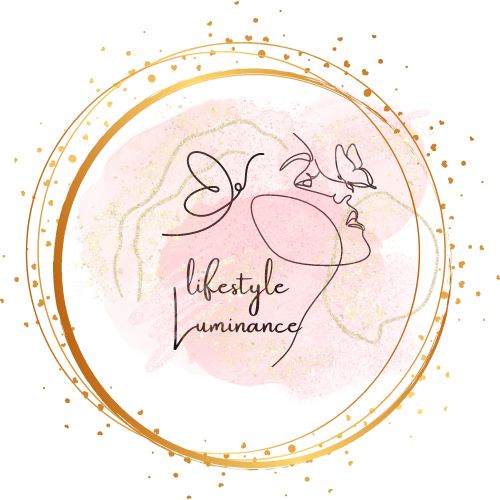Flowers have adorned human cultures for centuries, celebrated not only for their beauty but also for their therapeutic properties. Beyond their aesthetic appeal, many flowers contain compounds that offer various health benefits, ranging from alleviating stress and anxiety to boosting immune function. In this article, we delve into the fascinating world of healthful flowers, exploring their medicinal properties and the ways in which they can contribute to overall well-being.
Table of Contents
1. Lavender: Soothing Stress and Anxiety


Lavender, with its calming fragrance, is perhaps one of the most well-known flowers for its stress-relieving properties. Research suggests that inhaling the scent of lavender essential oil can reduce anxiety levels and promote relaxation. Additionally, lavender aromatherapy has been linked to improved sleep quality, making it a popular choice for those struggling with insomnia or sleep disturbances.
Moreover, lavender contains compounds such as linalool and linalyl acetate, which possess anti-inflammatory and analgesic properties. These compounds make lavender not only beneficial for mental health but also potentially useful in managing pain and inflammation.
2. Chamomile: A Natural Sedative
Chamomile, known for its delicate white petals and apple-like scent, is widely used for its calming effects. The flowers of the chamomile plant contain compounds like apigenin, which have been found to bind to receptors in the brain associated with anxiety and sleep regulation. As a result, chamomile tea is often recommended as a natural remedy for reducing stress, promoting relaxation, and improving sleep quality.
Moreover, chamomile possesses anti-inflammatory and antioxidant properties, which may contribute to its overall health benefits. It has been used traditionally to soothe digestive issues, relieve muscle spasms, and promote skin health.
3. Echinacea: Boosting the Immune System

Echinacea, also known as purple coneflower, is prized for its immune-boosting properties. The flower contains active compounds like alkamides, polysaccharides, and flavonoids, which are believed to stimulate the immune system and help the body fight off infections.
Studies have shown that echinacea extracts can reduce the severity and duration of colds and flu-like illnesses by enhancing the activity of immune cells. Additionally, echinacea may have anti-inflammatory effects, making it useful for conditions such as upper respiratory tract infections and inflammatory skin conditions.
4. Rose: Nourishing the Skin

Roses are not only symbols of love and romance but also possess several health benefits for the skin. Rose petals contain natural oils and antioxidants that can help moisturize and soothe the skin, making them a popular ingredient in skincare products.
Rose water, derived from distilling rose petals, has been used for centuries as a gentle astringent and toner for the skin. It can help balance pH levels, reduce redness and inflammation, and tighten pores. Additionally, the aroma of roses is believed to have mood-enhancing properties, promoting feelings of relaxation and well-being.
Exploring the Health Benefits of Flowers: Nature’s Remedy
5. Calendula: Healing and Soothing
Calendula, also known as marigold, is valued for its healing properties and vibrant orange or yellow flowers. Calendula contains compounds like flavonoids, saponins, and triterpenoids, which have anti-inflammatory, antimicrobial, and wound-healing properties.
Topical preparations of calendula, such as creams, ointments, and salves, have been used traditionally to treat minor cuts, burns, bruises, and skin irritations. Calendula may also help relieve symptoms of inflammatory skin conditions like eczema and dermatitis.
6. Hibiscus: Supporting Heart Health

Hibiscus flowers, with their bright colors and tart flavor, offer more than just visual appeal and culinary delight—they also provide potential health benefits, particularly for heart health. Hibiscus tea, made from dried hibiscus flowers, is rich in antioxidants like flavonoids and anthocyanins, which may help lower blood pressure and cholesterol levels.
Studies have shown that regular consumption of hibiscus tea may reduce both systolic and diastolic blood pressure, making it a natural remedy for hypertension. Additionally, hibiscus tea may improve lipid profiles by lowering levels of LDL cholesterol and triglycerides, thereby reducing the risk of cardiovascular diseases.
Exploring the Health Benefits of Flowers: Nature’s Remedy

Conclusion
From calming anxiety to boosting immune function and promoting skin health, flowers offer a myriad of health benefits that have been cherished by cultures around the world for centuries. Whether enjoyed as teas, essential oils, or topical preparations, incorporating healthful flowers into your daily routine can be a simple yet effective way to enhance your overall well-being.
However, it’s important to note that while flowers can complement a healthy lifestyle and provide natural remedies for various ailments, they are not meant to replace medical treatment when needed. As with any herbal remedy, it’s advisable to consult with a healthcare professional, especially if you have underlying health conditions or are pregnant or breastfeeding.
In conclusion, let us embrace the therapeutic power of nature’s blooms and harness their healing properties to nurture both body and soul. Whether it’s a fragrant bouquet on your bedside table or a soothing cup of herbal tea, take the time to appreciate the beauty and benefits of healthful flowers in your life.

